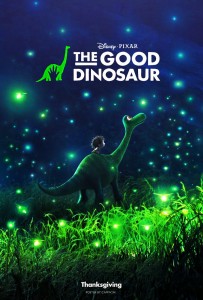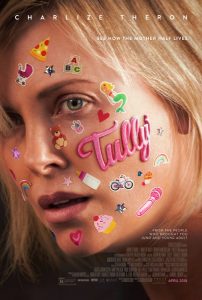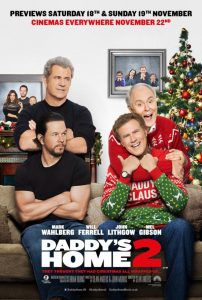In Hollywood blockbuster terms, we’re now living in an age of the cinema of moments. When you look at the biggest films out there, a trend seems to be emerging. Firstly, everything is now part of a larger universe. These movies aren’t distinct entities that stand on their own, they’re just another bit, cogs in a greater machine. From Marvel to DC, to King Kong and Godzilla, there’s constant setup for what’s next on the conveyor belt. Secondly, these movies feel more like a collection of big moments hung onto the frame of a film, which means there are frequent pacing and flow issues. These moments are put in because they are iconic from the source material, because they just look cool, because they link into that upcoming movie, or because they succeed in grabbing an audience’s attention, especially for marketing purposes. When you’ve got to get all those talkable, shareable moments in, it’s difficult to write a cohesive narrative around them. And when you practically ditch narrative for moments, then you’ve got to reconsider your approach.
While Suicide Squad doesn’t suffer from this obsession with moments quite as much as DC and Warner Bros’ last film Batman vs Superman, the film (the first half especially) still feels disjointed. It feels like a loose connection of moments, and when it switches to a straightforward plot, there’s not enough narrative propulsion to carry it through – the pace drops and it feels like a drag. This isn’t helped by awkward editing, perpetual rain, and scenes (or moments) that feel like reshoots dropped in at random. Suicide Squad is the most entertaining DC work since The Dark Knight, but it doesn’t work as a film should. The setup is far more interesting than the pay-off.
Suicide Squad follows on from BvS and the loss of Superman, with the US government concerned about the potential threat of another ‘meta-human’, one who doesn’t have such good intentions. In steps Amanda Waller (Viola Davis with what’s actually the movie’s most menacing performance), a sociopathic government official willing to do whatever it takes to ensure national security, no matter if it makes sense or not. After years of trying, she finally gets clearance for a special project – an expendable team of captured, villainous meta-humans who are forced to do her bidding. When a powerful force attacks Midway City, she takes the team out of prison and onto the streets.
There’s some fun to be had while the movie bounces around between the different main members of the squad during its first hour, with a series of character montages dealing out backstory, details and motivations (more for some characters than others) via flashbacks and voiceover. What doesn’t work so much in this section is the overuse of snippets of well-known songs, with wall-to-wall music occasionally giving it the feel of one long trailer. Deadshot (Will Smith) and Harley Quinn (Margot Robbie) are given the most attention, and it’s no coincidence that they are the strongest actors here, grabbing the screen when they’re on it. Smith doesn’t do much out of his normal ‘Will Smith’ work, but Robbie is electric. She’s the best thing in the movie despite the conflicting ways that the movie tries to get to grips with how damaged Quinn is (the over-sexualisation of Quinn is also shamelessly overt, with things like multiple shots of Harley walking away, with the camera at hip level for no discernible reason).
The rest of the squad – Captain Boomerang (Jai Courtney), Killer Croc (Adewale Akinnuoye-Agbaje), and Rick Flag (Joel Kinneman) are underwritten and forgettable, while Cara Delevingne as Enchantress/Dr June Moone is just bad. Her acting skills aren’t yet up to scratch, and her character – like the rest of the women the movie – is badly mishandled (Enchantress gyrates around in a bikini-type ensemble and turns men into slaves by kissing them. Subtext anyone?). El Diablo (Jay Hernandez) meanwhile manages to successfully twist some poorly paced and heavily laid-on psychological backstory into a couple of affecting scenes. Jared Leto’s much talked-about turn as the Joker flits in and out of the movie, and while comparisons with Heath Ledger’s performance are unfavourable, Leto has definitely gone in his own interesting direction. Much of the performance grates though, and they feel like shortcut tics that he’s gone for in an attempt to try to convey a character in limited screen time. Whether it would improve with a more hefty role is an interesting thought.
The film would have worked much better if the Joker was the main antagonist. Instead it defaults to the standard ‘all-powerful, non-human villain that sets whole cities aflame’ that ends most superhero movies. Again this enemy commands a faceless army of drone-like soldiers that can make endless hordes for fight scenes, giving set pieces that gratify the audience’s thirst for violence, but without the gore that would push up the rating and lose a section of viewers. The fight editing is also choppy, giving a muddled look to the action sequences.
Where director David Ayer really had to succeed with this movie though was in creating a believable bond between this squad, but he doesn’t. These baddest-of-the-bad go and kill a few faceless things together, share a couple of drinks, and suddenly they’re family. Ayer doesn’t earn this bond, he just writes it in. His screenplay also shortcuts to troubled and redemptive clichés too readily, and the dialogue and laughs often fall flat – “so I guess we’re some sort of suicide squad”. He also falls short with his music choices, with too in-your-face musical cues and songs that make some scenes feel like trailers. This being said, he nails the popcorn-punk aesthetic and thankfully drags us away from the black, whites and browns of the Zack Snyder DC films.
Despite all these problems, the movie isn’t quite a total BvS-style mess, and is sprinkled with fun and memorable moments. But that’s it– moments. As a film it doesn’t work, and when compared to the Marvel equivalent, Guardians of the Galaxy, it’s a long way off.
Suicide Squad is in cinemas from 4th August through Roadshow Films.





